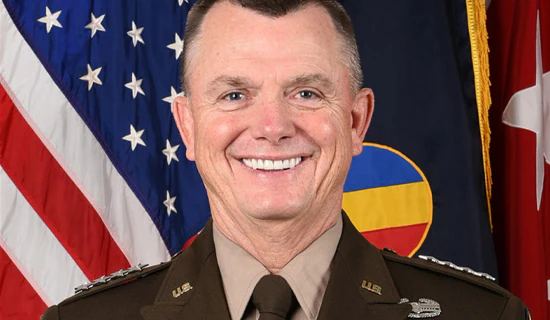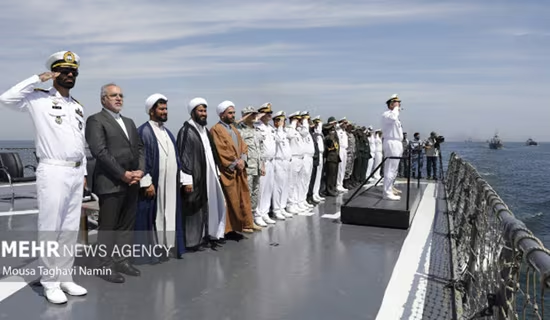Alongside the relief felt in Lebanon over the ceasefire agreement signed after more than a year of fighting between Israel and Hizbullah, there is also growing concern that, based on past experience, Hizbullah is unlikely to honor the agreement, which requires it to disarm and to dismantle its military infrastructure. Several columnists, primarily opponents of Hizbullah, said that the organization, which is not a signatory to the agreement, has not declared its willingness to give up its weapons and will not take any action to implement the agreement. They argued further that the agreement ignores the root of the problem, which is Iran's influence and Hizbullah's weapons north of the Litani River, which may now be turned against Hizbullah's opponents in the country, as has happened in the past. They also asserted that Hizbullah will not conceivably accept the role of the U.S. and France in ensuring compliance with the agreement, since it was behind the October 1983 Beirut barracks bombings, in which targeted American and French members of a multinational peacekeeping force.
It should be noted that, according to the document published by the U.S. and France on November 26, 2024, Israel and Lebanon are committed to implementing United Nations Security Council Resolution 1701 and previous UNSC resolutions calling for the disarmament of all armed groups in Lebanon. These resolutions are not specified, but the reference is apparently to Resolution 1559 from 2004, which calls for all Lebanese and non-Lebanese militias in the country to be disarmed and dismantled, and Resolution 1680 from 2006, which urges the Lebanese government to implement Resolution 1559 and to act to prevent weapons from entering the country.[1]
The document also states that, apart from UNIFIL, the Lebanese military and security forces will be the only armed organization south of the Litani River, effectively requiring Hizbullah to withdraw its armed forces to the north, beyond the Litani. In addition, Lebanese military and security forces are required to dismantle any unauthorized military infrastructure and weapons, first south of the Litani and subsequently in the rest of Lebanon.
These concerns on the part of Hizbullah opponents are not unfounded. Several Hizbullah officials have said that the organization has no intention of disarming. For example, Hizbullah MP Hassan Fadhlallah said: "I am from the south. We are rooted in that land. The resistance fighters are in the south. We have no military bases, we have no [external] military [features]… In the case of war, some of the [military] equipment is sent to the south…" On the subject of the ceasefire, Fadhlallah said: "This is not an agreement, but rather measures. There was no signing [of any document], there are [just] understandings… The government is the one that agreed…" Fadhlallah insisted on Hizbullah's right to retain its military capabilities, saying: "[The legitimacy] of the weapons of the resistance and its rights are rooted, first and foremost, in human rights, in the international conventions... in the Taif Agreement[2]… in the government statements that made the right to resistance a constitutional practice… [and] in our right to defend ourselves. If Israel attacks our country… we will fight and resist. This is our human right…"[3]
The following are translated excerpts from statements by Hizbullah's opponents in Lebanon questioning its commitment to the ceasefire.
The Agreement Is Fragile; Hizbullah Interprets It As It Pleases
Khairallah Khairallah, a Lebanese columnist for the Emirati daily Al-Arab, wrote: "So far, there is no indication that Hizbullah wants to implement Resolution 1701... It is clear that nothing has changed from its perspective... Anyone who reads the text of Resolution 1701, adopted in August 2006, can see that it is aimed mainly at creating a zone free of Hizbullah's weapons in South Lebanon, [but] so far, Hizbullah has not declared its willingness to hand over its weapons to the state. Hizbullah reads the ceasefire document through its own eyes, [i.e., from the perspective of] the Iranian agenda. It still refuses to read the text of the resolution [properly] and believes that nothing has changed since 2006..."
Khairallah expressed concern that Hizbullah would exploit the weakness of Lebanon's state institutions and of other elements in the country to turn its weapons against its opponents. He warned that Hizbullah's positions render the ceasefire agreement fragile despite the American sponsorship and guarantees, and concluded: "Now that Lebanon's latest war has ended, we will discover whether the state can continue to exist while Hizbullah retains its weapons, weapons that the 'Islamic Republic' [of Iran] has entrusted with a new role and which the state is unable to control despite the good intentions of acting Prime Minister Najib Mikati..."[4]
Past Experience Indicates That Hizbullah Does Not Honor Its Commitments
Journalist Marianne Zouein wrote in the Nida Al-Watan daily that Hizbullah has been violating its commitments for years, so it cannot be trusted this time either. She wrote: "How can you believe someone who excels at committing to not committing? [Hizbullah] makes a commitment in the media and then emerges from its tunnels with a completely different agenda, written with the ink of its own interests and those of Iran..."
Past experience, Zouein added, shows that Hizbullah does not honor the agreements it signs. For example, it avoided complying with the 1989 Taif Agreement, which required all the militias to surrender their weapons. It claimed to be exempt from this requirement because it had a "sacred mission" to fight the Israeli occupation of South Lebanon. But even after Israel withdrew in 2000, Hizbullah did not declare its mission complete but rather invented new excuses to keep its weapons, said Zouein. Then, in 2006, the organization promised to "keep quiet during the summer," but a few months later it kidnapped two Israeli soldiers, thereby triggering the July 2006 war. It also violated UN Security Council Resolution 1701, even though it committed to it, on the grounds that the Lebanese army was incapable of defending the country. In 2012, the organization violated its promise not to intervene in regional conflicts by becoming involved in the Syrian civil war.
Zouein concluded: "Today, after the latest ceasefire [agreement has been signed], we hear statements like those of [Hizbullah] MP Hassan Fadhlallah, who stressed that Hizbullah's men will stay in the South for purposes of self-defense and will be supplied with weapons as necessary[5] -- although the latest ceasefire agreement, which they applauded, assigns this mission [of Lebanese self-defense] solely to the army… Hizbullah does not suffice with avoiding commitments. It makes a joke of its promises."[6]
Hizbullah, Which Was Responsible For Targeting U.S. And French Servicemen In 1983, Will Not Accept American-French Patronage
Nida Al-Watan columnist Najem Al-Hashem called to liberate Lebanon from the control of Hizbullah, which has indicated that it will not necessarily honor the ceasefire agreement. He wrote: "There is no evidence that Hizbullah will commit to implementing its November 27 ceasefire agreement with Israel. Indications that accompany the organization's behavior and its political and military discourse suggest that it [regards itself] as external to this agreement and that it is not interested in it. It will not implement the agreement, since it is not the one that signed it. It will not give up its weapons or its military arsenal. There is no force, Lebanese or non-Lebanese, that can impose this commitment on it, in the absence of a clear political decision that chooses this option in order to wrest the state's decision[-making] from Hizbullah's control...
"Hizbullah has directly indicated that it is not committed to implementing [the agreement]. [This is clear] from the actions of its members and some of its officials on the ground, from the Dahieh [in Beirut] to the [area] south of the Litani River and up to the border fence [with Israel]... Past experience proves that Hizbullah... will not be committed to the provisions of the latest ceasefire agreement.
"Hizbullah was the one responsible for targeting the U.S. and French forces in 1983, so it will not conceivably agree to let the U.S. and France guarantee the implementation of this agreement… Nor will it agree to give up its weapons as long as it remains subordinate to the Rule of the Jurisprudent [i.e., the Iranian regime]. Even if Hizbullah empowered [Lebanese Parliament] Speaker [Nabih] Berri to negotiate [the ceasefire on its behalf], it did not empower him to decide that it would give up its weapons…
"After every confrontation… Hizbullah declares that it is invincible, that Allah grants it victory, and that its men are servants of Allah who fight out of religious faith in disregard of their national identity and of the Lebanese decisions and Lebanese authorities. They see the authorities and the Lebanese army as nothing more than a means to further their interests. Hassan Nasrallah continues to lead this organization from the grave. The only way to break this vicious cycle, through which Hizbullah takes Lebanon hostage, is to liberate the state from Hizbullah's control…"[7]
[1] See: Digitallibrary.un.org, accessed December 4, 2024
[2] The Taif Agreement, signed on October 22, 1989, brought an end to the Lebanese Civil War. It implemented major political reforms and redistributed power amongst Lebanon’s religious sects by establishing a new order of political, civil, and military authorities based on sectarian criteria. The agreement also ordered the dismantlement of all “Lebanese and non-Lebanese militias, and the transfer of their weapons to the Lebanese state.” See: Presidency.gov.lb, accessed December 3, 2024.
[3] Instagram.com/aljadeednews, November 29, 2024.
[4] Al-Arab (London), November 29, 2024.
[5] This is apparently a reference to Fadhlallah’s aforementioned statement from November 29.
[6] Nida Al-Watan (Lebanon), November 30, 2024.
[7] Nida Al-Watan (Lebanon), November 29, 2024.




